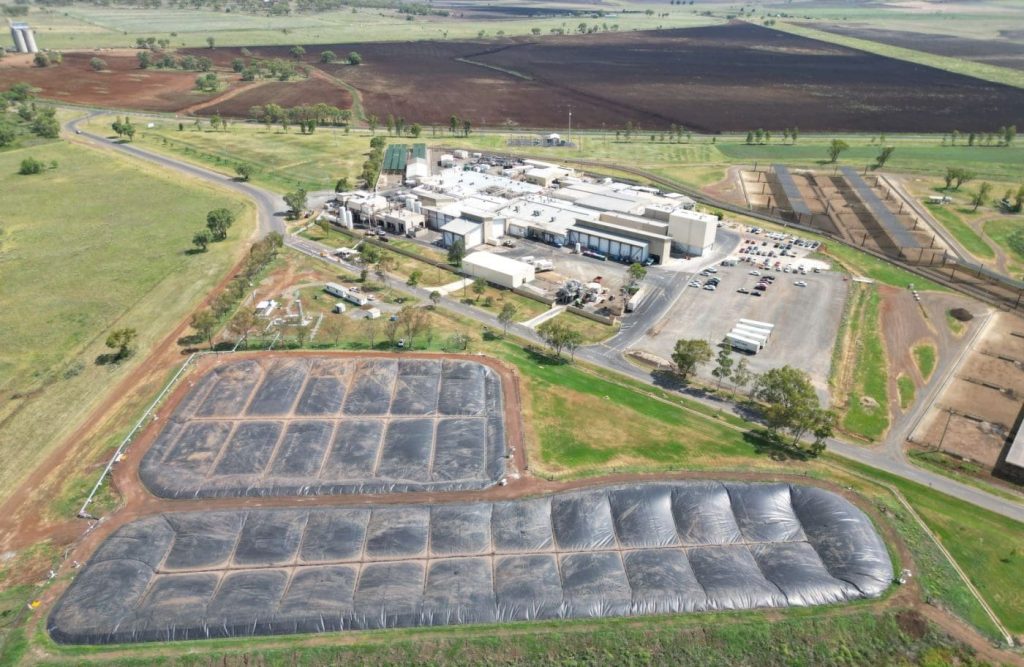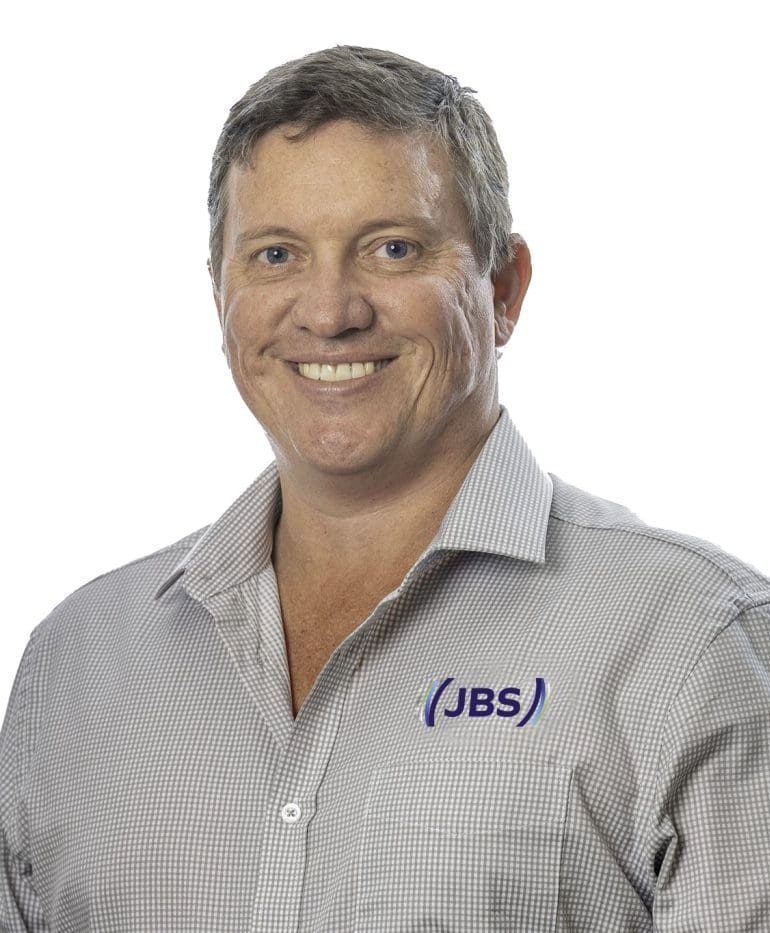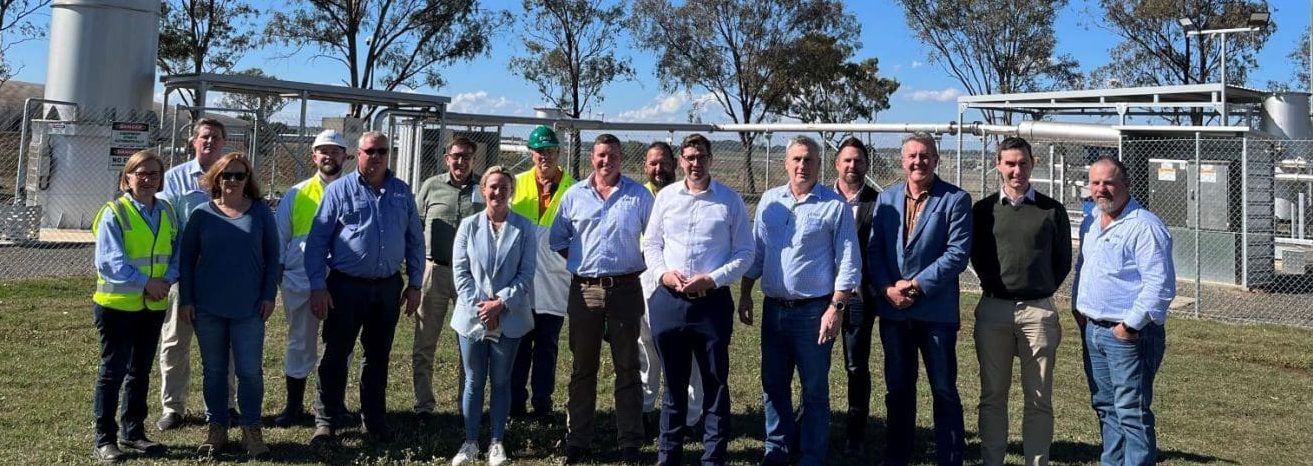
A RECENTLY completed bioenergy system installed at JBS Australia’s Beef City processing facility is producing up to 10,000 cubic metres of biogas per day, eliminating the equivalent of 34,000 tonnes of carbon dioxide emissions annually.
JBS has completed the installation and commissioning of the new biogas harvesting system at Beef City, an integrated feedlot and processing facility near Toowoomba on Queensland’s Darling Downs, to offset energy requirements on-site.
The system is one of two similar JBS projects that have come on-line this year totalling $11.1 million investment into bioenergy infrastructure, with JBS Southern recently completing a bioenergy system at its Scone processing plant in New South Wales.
The completed systems will contribute to a total annual reduction of about 57,000t of carbon dioxide equivalent emissions.
Circular wastewater treatment
JBS partnered with AGL-owned biogas handling company Energy360 to install bioenergy infrastructure at Beef City that enables a circular wastewater treatment process. Two gas-tight pond covers have been installed over pre-existing anaerobic wastewater lagoons, allowing naturally occurring biogas to be captured and redirected for use as a production heat source. These covers also prevent waste odour from entering the atmosphere.
This biogas is now displacing a significant portion of Beef City’s natural gas requirements.
This provides Beef City with substantial Greenhouse Gas abatement well into the future, as well as reducing costs by lessening the plant’s reliance on natural gas, the company said.
The additional inclusion of a de-sulphurisation system underneath the lagoon covers has allowed for more oxygen to be introduced, which lessens the production of other hazardous gases.
A similar project was completed at the JBS Dinmore site in 2014.

Brendan Tatt
JBS Northern chief operating officer Brendan Tatt said the project exemplified JBS’s focus on investing in renewable infrastructure and sustainability projects.
“It’s a win-win design that reuses a naturally occurring waste product to replace a considerable volume of natural gas, which is great for both cost and emissions management,” he said.
JBS’s Beef City site celebrates 50 year of continuous operations this year, having been constructed in 1974.
“It is our commitment to innovation projects like this that will ensure Beef City remains competitive and an important pillar of our community for another 50 years,” Mr Tatt said.
Beef City processing plant manager Justin McCormick said the new bioenergy system was already making significant contributions to reducing Beef City’s emissions profile.
“Since commencing operations, the bioenergy system keeps proving its worth at Beef City, as we use more and more biogas each day as a lower carbon energy. Daily replacement of LNG has been as high as 10,000 cubic metres of biogas per production day, which significantly lessens our total natural gas consumption and significantly reduces our carbon dioxide equivalent emissions,” Mr McCormack said.
“We thank our engineering team and our construction contractors Energy 360 for their expertise and contribution towards building a system that revolutionises our waste management and energy usage. We’re pleased to see it making a tangible impact already,” he said.

Representatives from JBS Australia, the Toowoomba City Council AGL/Energy 360 inspect the Beef City Bio-energy Project near Toowoomba
AGL Group general manager for electrification & innovation Ryan Warburton, said the project was a testament to the work AGL was doing to provide end-to-end tailored renewable energy solutions to large business customers.
“We’re proud to have partnered with JBS Australia on this circular project and to see how JBS has embraced biogas. At AGL, we are committed to supporting our large commercial and industrial customers decarbonise the way they work, with JBS embracing biogas to support their sustainability goals, reduce their emissions and help lower costs.”
Toowoomba Regional Council Mayor Geoff McDonald, who recently visited Beef City to tour the bioenergy system, said his council was delighted to see JBS Australia embracing innovation and investing in circular economy infrastructure locally.
“Projects like JBS’s show that production can be modernised to address environmental challenges such as energy consumption and waste, in a thoughtful way that supports both our environment and local community,” he said.

HAVE YOUR SAY